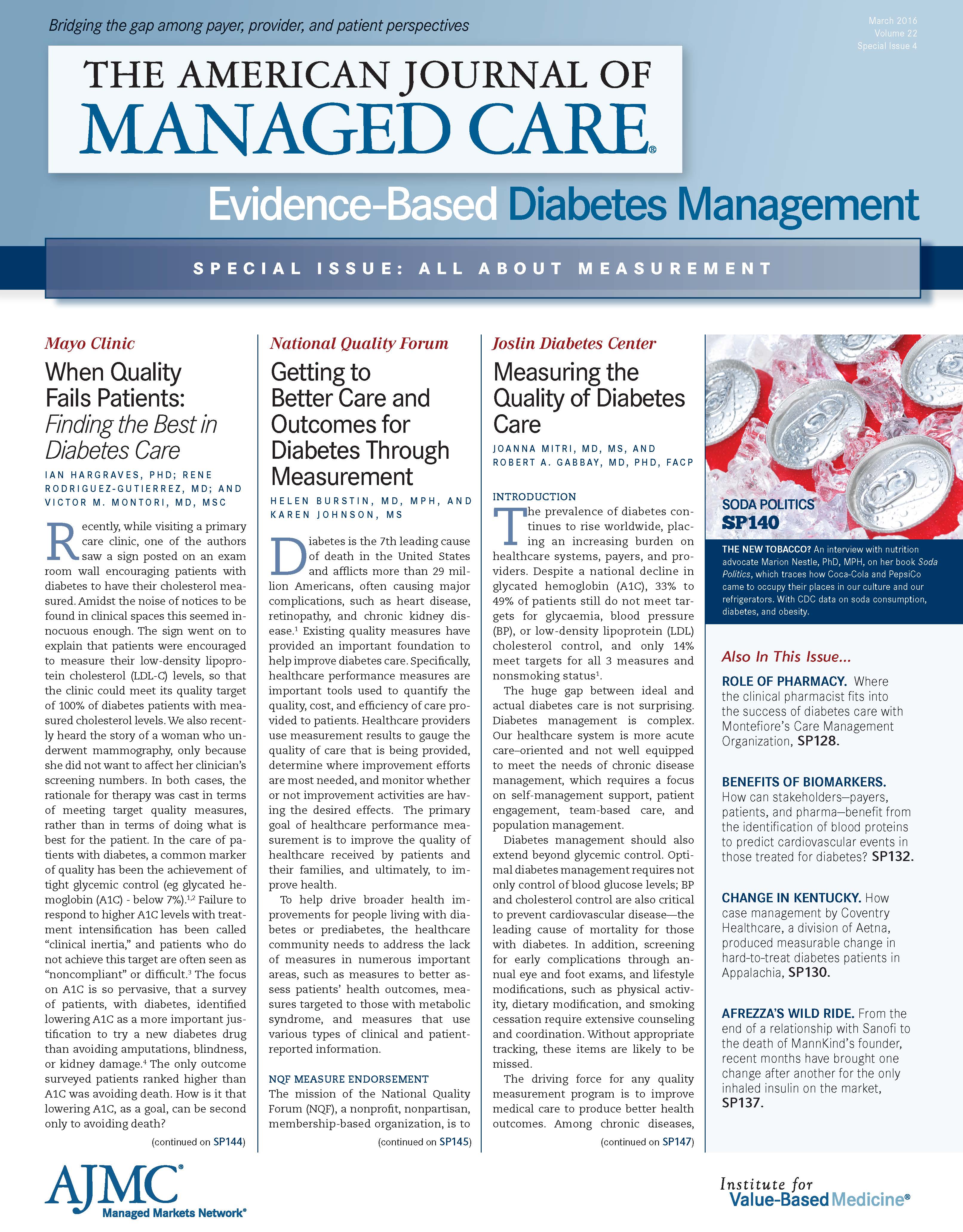- Center on Health Equity & Access
- Clinical
- Health Care Cost
- Health Care Delivery
- Insurance
- Policy
- Technology
- Value-Based Care
Understanding Matters of Measurement in Diabetes Care
Dr Gabbay is editor in chief of Evidence-Based Diabetes Management.
This issue addresses an area of increased importance in diabetes care: measurement. It helps us understand the progress of an individual patient and the perfor­mance of a practice, and is the first step towards improving quality. Big data can serve as an early warning system that a new therapy poses a risk, or that there is a weakness in a care delivery system.
I have said often that the movement toward rewarding val­ue began in diabetes care, and our field remains at the fore­front of the revolution that is happening today in healthcare. Those of us who have spent years in diabetes care are already seeking ways to improve on the early steps. At Joslin Diabe­tes Center, we have done this with the Joslin Clinical Analytic Tool, (JCAT), which my colleague Joanna Mitri, MD, MS, and I discuss in this issue.
The logic of JCAT is simple: measurement matters, not just for payment, but especially for driving better care. Actionable data empowers provider teams to improve their outcomes, ul­timately, for the benefit of patients. Ultimately, we need tools that address the uniqueness that each patient presents and aligns with individual goal setting.
As Ian Hargraves, PhD, and his co-authors from the Mayo Clinic address in their commentary, our quest for hitting qual­ity targets must never be at the expense of the patient in front of us; fortunately, both guidelines and measures are moving in a direction that takes this into account.
The National Quality Forum (NQF) understands the need to continually refine diabetes measures; as Chief Scientific Officer Helen Burstin, MD, MPH, and Senior Director Karen Johnson, MS, discuss in their article, the firm foundation that NQF has created is forming the basis for the “next generation” of measures that will be driven by patients and the trend to­ward greater self-management. A combined focus on process measures, intermediate clinical outcome measures and pop­ulation-level health outcomes can significantly improve care, particularly as payment models reward quality and value.
This issue of Evidence-Based Diabetes Management also fea­tures perspectives on the role of the pharmacist in driving better clinical outcomes, a case study from a payer that pro­duced improved measures in a hard-to-treat diabetes popu­lation in Kentucky, and a discussion of the potential role of biomarkers to guide treatment.
Bringing stakeholders in diabetes care together is the mis­sion of both EBDM and The American Journal of Managed Care. We do this both in our print publication and at our live meet­ing, Patient-Centered Diabetes Care, which will convene next month, April 7-8, 2016, in Teaneck, New Jersey. Dr Mitri and several other outstanding faculty from Joslin will join me in presenting the program, which for the first time will feature special sessions on obesity. Please visit http://www.ajmc. com/meetings/pcdc16 to register, and I hope to see you.

Quality of Life: The Pending Outcome in Idiopathic Pulmonary Fibrosis
February 6th 2026Because evidence gaps in idiopathic pulmonary fibrosis research hinder demonstration of antifibrotic therapies’ impact on patient quality of life (QOL), integrating validated health-related QOL measures into trials is urgently needed.
Read More
Exploring Pharmaceutical Innovations, Trust, and Access With CVS Health's CMO
July 11th 2024On this episode of Managed Care Cast, we're talking with the chief medical officer of CVS Health about recent pharmaceutical innovations, patient-provider relationships, and strategies to reduce drug costs.
Listen
Building Trust: Public Priorities for Health Care AI Labeling
January 27th 2026A Michigan-based deliberative study found strong public support for patient-informed artificial intelligence (AI) labeling in health care, emphasizing transparency, privacy, equity, and safety to build trust.
Read More

